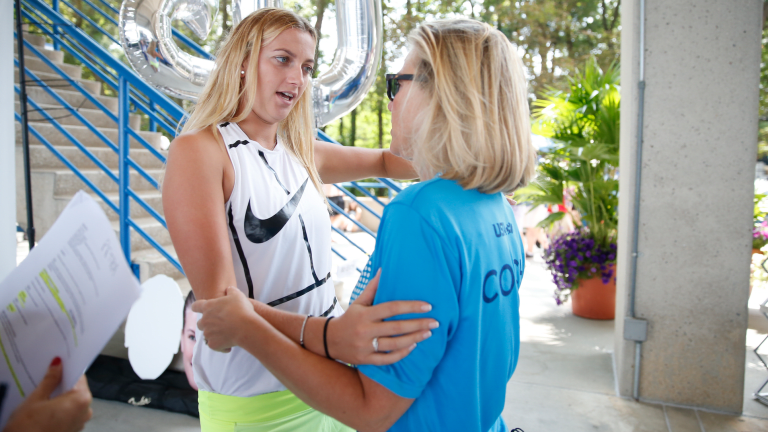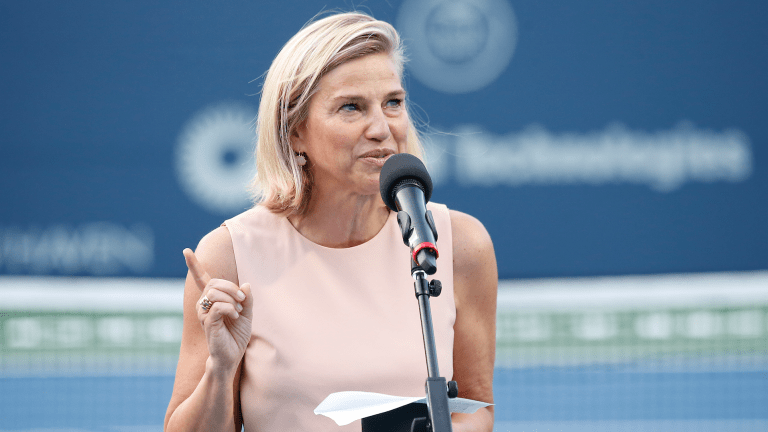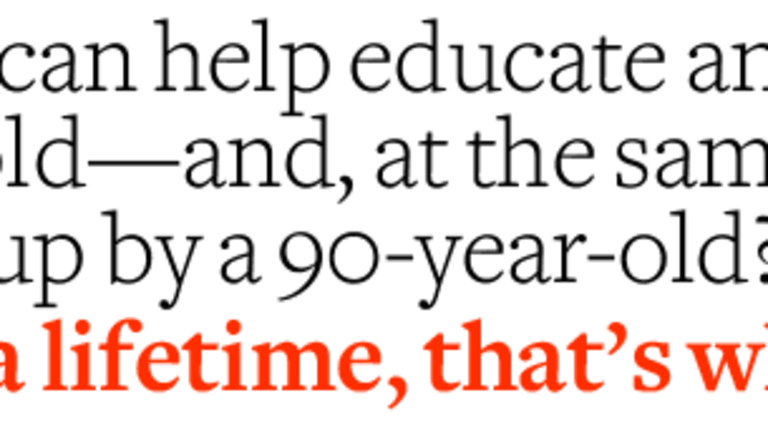On Friday, February 1, the Connecticut Open officially sold its sanction to APG, which will now hold the Premier tournament in Zhengzhou City, China from September 9 to 15. The event had previously been held in New Haven for 21 years. Tournament director Anne Worcester had been looking for a sponsor to help stick around, but she and her consultants were ultimately unsuccessful.
“It has been an amazing 21-year run for women’s professional tennis in New Haven and we are truly grateful to all the fans, volunteers, players, media and sponsors involved,” said Worcester. “While we remember our great champions, we are most proud of the benefits the tournament has brought to the local community.
Some of those benefits included the fact that the Connecticut Open generated more than $10 million annually in economic impact for the City of New Haven and State of Connecticut and provides significant philanthropic support for local organizations.
In late 2017, TENNIS.com's Ed McGrogan shadowed Worcester during the first day of the Connecticut Open. He saw firsthand the amount of work she put into the event, and the positive environment she helped create for tournament staff, players and fans. The tournament was impressive in many ways, as is Worcester.—Zach Cohen
By Friday, August 18, the Connecticut Open’s brand-new media center had already been bustling with activity. This year’s tournament, marking the 20th season of WTA competition in New Haven, was just two days away from kicking off. Qualifying matches were about to get underway, but inclement weather had put the event’s initial wave of tennis on hold.
But no matter when the first balls would actually be hit, the Premier-level tournament truly began at 10:50 a.m.—the moment Anne Worcester walked through the door of the media center, carrying a pot of black-eyed susans in one hand, and the livelihoods of countless individuals on her back.
“Happy day one!” exclaimed Worcester, one of the sport’s most respected tournament directors. But it was hardly the first day of work for the 57-year-old former CEO of the WTA tour. A relentless advocate for tennis and the ways it can transform communities, Worcester speaks of her event in the measured and thoughtful manner that imbues every one of the conversations she’ll have on this day.
“This tournament has always existed to give back,” says Worcester; the Connecticut Open became a 501(c)(3) charitable organization when the state purchased a WTA sanction in 2013. “That doesn’t happen by moving in and out of a city for two months. It is a year-round effort with a lot of partnership, collaboration and civic engagement.”
This day, however, might be Worcester’s busiest of the last 365. She begins making the rounds at 10:53 a.m., walking through the corridors of the Connecticut Tennis Center at Yale with purpose. She pops into the newly configured WTA office, says hello to the staff, advises that the start of qualifying matches will be delayed, and drops off the flowers.
“Remember you said, ‘Bring me some sunshine?’” Worcester tells one employee on the overcast morning.
A few seconds later, Worcester greets one of the tournament doctors she’s known for years.
“We’ll make another call about play at 12 noon,” she tells him with assurance at 10:54 a.m.
With no matches going, players have filled up the recently renovated Player Center, including Kristyna Pliskova, who requested a late wild card into the tournament. Worcester dispensed two wild cards weeks earlier, to Sloane Stephens and Eugenie Bouchard; both headline attractions helped promote the Connecticut Open throughout the summer. She had also been in contact with the teams for Madison Keys and Angelique Kerber, potential entrants depending on their play in Cincinnati, and French Open champion Jelena Ostapenko, who because of tour rules couldn’t receive a wild card, to Worcester’s dismay.
“I go to Miami in March, when the players are thinking about their non-mandatory tournaments for the summer, and then I go to Wimbledon, which is right before our entry deadline,” says Worcester. “I’m very respectful of the agents, but I talk to the players directly, and keep in touch year round.”


